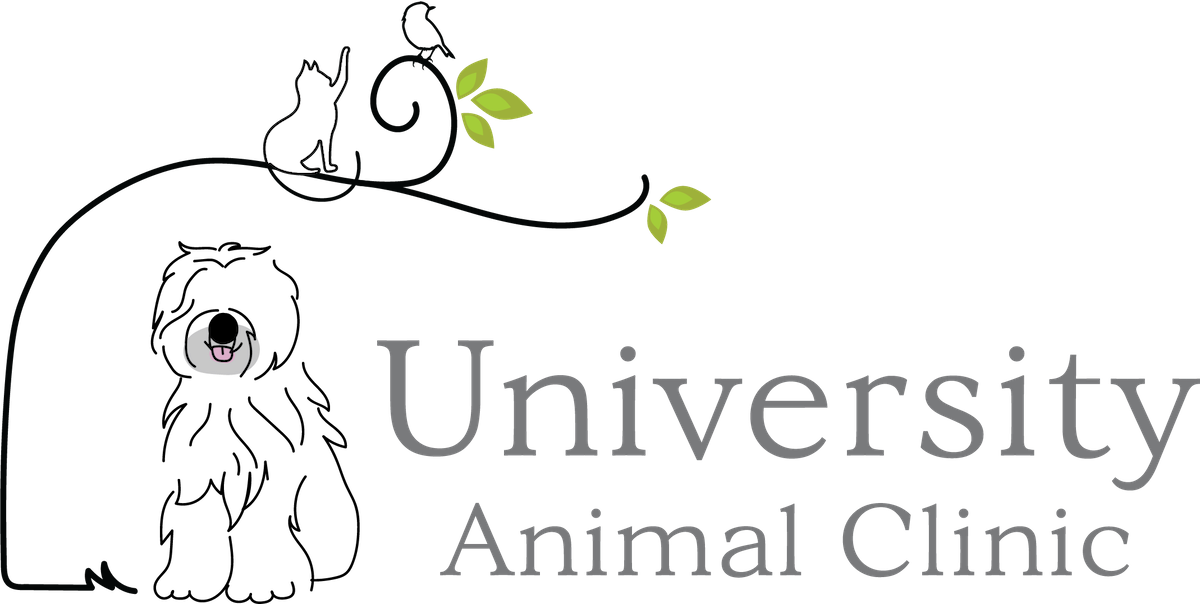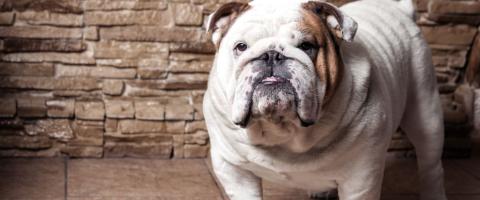
Ever wondered what it's like to have a couch potato who can also serve as a formidable guard dog? If so, meet the English Bulldog—a breed that perfectly balances love and loyalty. Here's everything you need to know about this adorably rugged canine!
Here’s Why You'll Fall in Love:
- Affection Overload: English Bulldogs are easygoing, lovable, and dote on their families.
- Quiet Companion: Not a fan of constant barking? The Bulldog is usually a silent partner.
- Kid-Friendly: They're excellent around children and get along well with other pets.
- Guard Dog Extraordinaire: Fearless and dependable, your Bulldog will always have your back.
- Adaptability: Whether you live in an apartment or a sprawling estate, Bulldogs adapt well to various living conditions.
- Social Butterfly: These dogs are outgoing and friendly, making them great for social gatherings.
A Few Things to Consider:
- Gassy and Drooly: Yep, they can be a bit, let's say, "fragrant," and they do tend to drool.
- Noisy Sleeper: Expect some snorting, snuffling, and potentially even snoring.
- Weight Watch: Bulldogs can gain weight quickly if they're not regularly exercised.
- Puppy Antics: Particularly when young, they can be rambunctious and rowdy.
- Slow to Mature: They may take their time in growing up, both emotionally and physically.
- Possessive Tendencies: They may guard their toys and food unless trained otherwise.
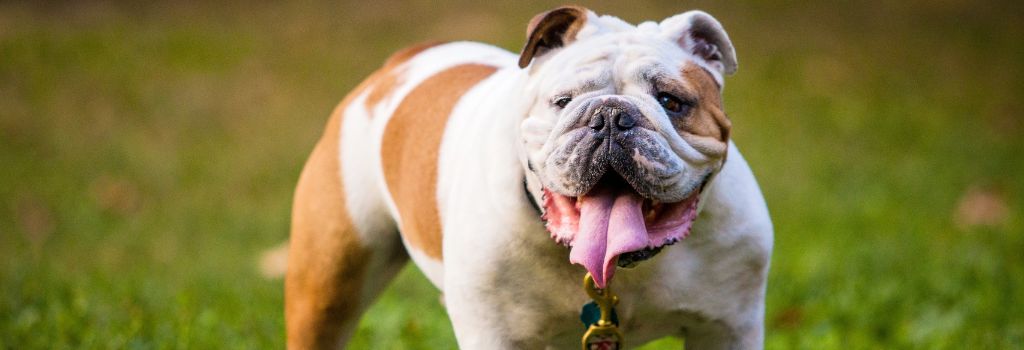
A History Lesson
The modern English Bulldog has roots in 19th-century England, where it was bred for a gentler disposition after the ban of bull-baiting. The Old English Bulldog was crossed with the Pug to create a family-friendly version while retaining its courageous nature. These dogs have become symbols of resilience and strength, serving as mascots for the U.S. Marine Corps and various universities.
Healthwise:
Generally, a healthy breed, Bulldogs have an average lifespan of 10-12 years. Always consult with your vet for regular check-ups and weight management tips.
The Bottom Line
The English Bulldog is a versatile pet, fitting seamlessly into most family dynamics. With a bit of early socialization and consistent training, this breed can be both your cuddle buddy and your fearless protector.
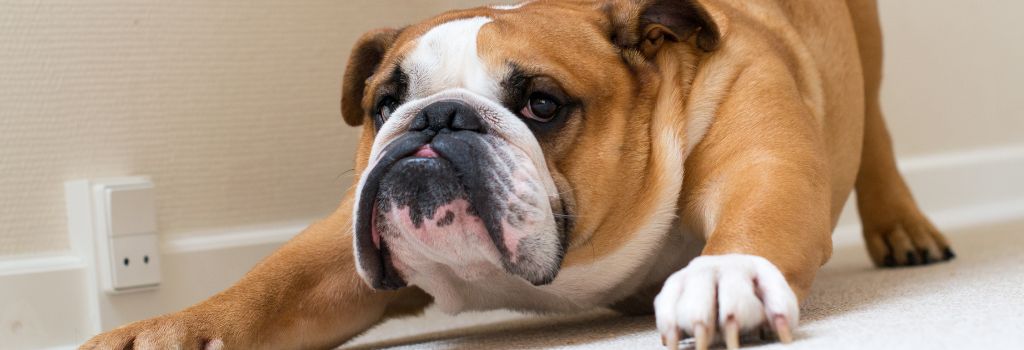
Genetic Predispositions for Bulldogs
The Bones, Joints, and Muscles: Keeping Your Bulldog Agile
Bulldogs are loveable and full of character, but they can sometimes be prone to musculoskeletal issues. Keep an eye out for stiffness or trouble getting up, as Bulldogs are at risk for hip and elbow dysplasia, which can lead to arthritis. But fret not! Early treatment can minimize discomfort, and X-rays can catch problems before they worsen. In extreme cases, surgery may be an option. And don’t forget: keeping Fido’s weight in check can help prevent early onset of arthritis.
Additionally, if you have a Bulldog puppy, make sure he doesn’t grow too quickly. Overspeeding his growth can lead to a condition known as osteochondritis dissecans (OCD), which may require surgery to fix. Stick to a large-breed puppy diet and weigh your little one every three to four weeks.
Bulldogs and Backs: Spinal Concerns
Did you know Bulldogs are more likely to have spinal deformities like hemivertebrae? Early X-rays can help us catch any problems that may worsen with age or activity. If your Bulldog starts showing signs of back issues, your doctor will make sure to rule out other problems like slipped discs or arthritis and tailor a treatment plan that could include medication, acupuncture, or rehab.
Breath Easy: Respiratory Distress Syndrome
Ah, the classic Bulldog snort! It's cute but could signify respiratory issues. Bulldogs have a unique anatomical structure that can make breathing difficult. Known as brachycephalic syndrome, this condition may require surgical correction in severe cases. So if your Bulldog seems to struggle with exercise, shows signs of labored breathing, or even faints, don’t delay seeking veterinary advice.
Weighty Issues: Bladder or Kidney Stones
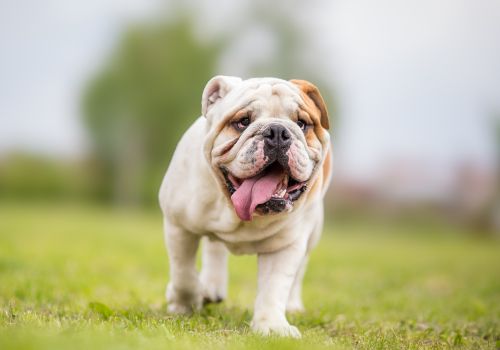
If your Bulldog has been having issues urinating, pay attention! Bulldogs are more prone to developing painful kidney and bladder stones. Blood in the urine or straining to urinate is a red flag and requires immediate medical attention.
Heart Matters: Cardiovascular Health
Heart disease can be a concern for Bulldogs, especially as they age. Regular check-ups will include listening for any heart murmurs or abnormal rhythms. Early detection often allows for medication that can prolong your fur baby’s life.
A Skin-Deep Issue: Dermatitis and More
If your Bulldog is excessively scratching, he could be suffering from skin conditions like yeast infections or seborrhea. Don't ignore this, as untreated skin issues can make your buddy miserable. Early diagnosis and a treatment plan can keep your dog's coat healthy and itch-free.
Eye Trouble in Your Bulldog: What You Need to Know
Bulldogs are more susceptible than other breeds to a range of eye problems, some of which can turn into a major concern if not addressed swiftly. From their puppy years to their adult life, it's vital to keep a watchful eye (pun intended) on their eyes during vet visits:
- Distichiasis: Imagine having a stray hair poking your eye. Sounds pretty uncomfortable, right? That's what Distichiasis is for Bulldogs—extra hairs grow inside their eyelids and irritate the surface of the eye. If untreated, these pesky hairs can lead to severe eye pain and even corneal ulcers. But worry not; treatments are available and are often very effective once those extra hairs are removed for good.
- Entropion: This one is a doozy! Entropion causes the eyelid to roll inward, making the eyelashes scratch the eye's surface. Ouch! Bulldogs are particularly prone to this irritating and painful condition that could lead to blindness. Surgical intervention is typically effective, especially when performed early.
- Dry Eye (Keratoconjunctivitis Sicca): Bulldogs are also prone to dry eyes or KCS. When this happens, the tear glands don't make enough tears, causing itchy, sore eyes and infections. If you spot symptoms like a thick discharge or your dog pawing at his eyes, it's time to consult your vet for a tear test and treatment, which usually involves lifelong application of a prescribed ointment.
- Cherry Eye: Lastly, let's not forget the "third eyelid" that dogs have. In Bulldogs, this can sometimes become sore or swollen, looking like a red blob in the eye corner. This is known as cherry eye. Treatments range from ointments to surgery, especially if your furry friend is a puppy or in their younger years.
The Silent Scare of Laryngeal Paralysis

As Bulldogs age, they might face an issue that can literally take their breath away—larangeal paralysis. This condition affects the vocal cords, which become paralyzed and hang into the airway. Noisy breathing, especially during exercise or hot weather, is a tell-tale sign. In severe instances, your Bulldog might even collapse and struggle to breathe. Early intervention and lifestyle adjustments can manage mild cases, so make sure you consult your vet immediately if you notice symptoms.
Cancer: Early Detection Is Key
Cancer is, sadly, a leading cause of death among older dogs. But let's focus on the silver lining: Bulldogs often outlive many other breeds and therefore have a fighting chance against cancer, especially if detected early. Treatments range from surgical removal to chemotherapy. Your vet will guide you through the best route for your pet, including routine check-ups to spot any worrying lumps or bumps.
Keeping that Smile Bright: Dental Abnormalities in Bulldogs
You've probably admired your Bulldog's adorable smile—those teeth are not just for show! Dental issues are relatively common in Bulldogs and can be a mix of genetic and environmental factors. From malocclusions (overbites or underbites) to Oligodontia (having only a few teeth), dental problems can range widely. The good news? Just like humans, dogs can also benefit from braces or tooth extractions to fix misaligned teeth. Regular vet check-ups can help keep track of any developing dental issues.
If you have questions and you'd like to reach out to us, you can call us directly at (941) 253-5218, or you can email us at staff@uacvet.com. Don't forget to follow us on social media Facebook, Instagram.
